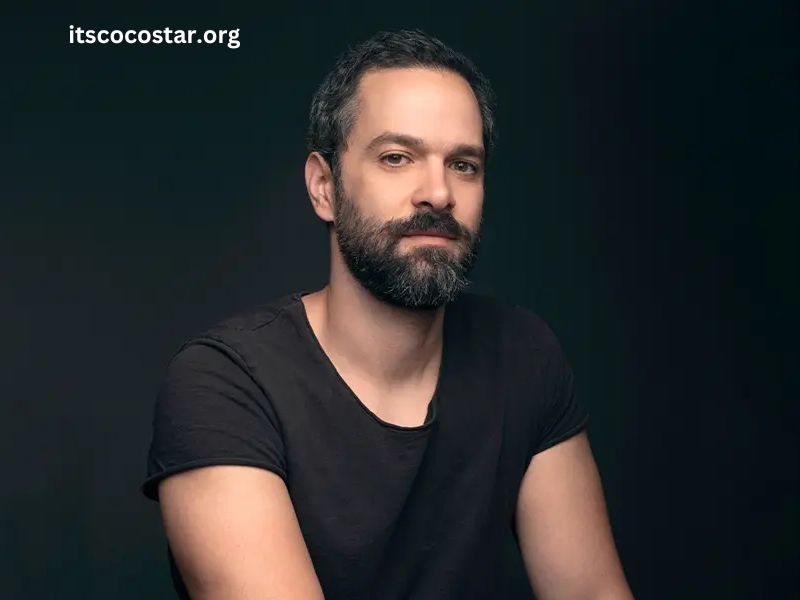Neil Druckmann is a name that resonates deeply within the gaming community, known for his influential work as a writer and creative director at Naughty Dog. With titles like The Last of Us and Uncharted 4: A Thief’s End, Druckmann has played a pivotal role in shaping modern video game storytelling. However, his career is not just defined by his accolades; it also serves as a lens through which we can explore broader themes of creativity, identity, and the often-overlooked reality of collaboration in the gaming industry.
The Rise of Neil Druckmann
Neil Druckmann was born on April 5, 1978, in Haifa, Israel, and moved to the United States at a young age. His journey into the gaming world began with a passion for storytelling, which he initially pursued through literature and film. Druckmann graduated from the University of Southern California’s School of Cinema-Television, where he honed his skills in narrative development.
Joining Naughty Dog in 2004 as an intern, Druckmann quickly ascended through the ranks. His early work included contributions to the Jak and Daxter series, but it was his collaboration with Bruce Straley on Uncharted: Drake’s Fortune that marked his breakthrough. The success of the Uncharted series set the stage for his most significant project: The Last of Us.
Crafting Emotional Narratives
The Last of Us was released in 2013 and quickly became a landmark title in gaming history. It tells the harrowing story of Joel and Ellie, two characters navigating a post-apocalyptic world filled with danger and loss. What sets the game apart is its deep emotional resonance, achieved through meticulous character development and storytelling.
Druckmann’s approach to narrative is rooted in the belief that games can evoke profound emotional responses. He often emphasizes the importance of character arcs and moral ambiguity. In The Last of Us, players are forced to make difficult choices that challenge their ethical beliefs, immersing them in the story on a personal level.
“You’re Way Less Important”
One phrase that has surfaced in discussions about Druckmann is “You’re way less important.” While this statement may initially come off as dismissive, it serves a deeper purpose when contextualized within Druckmann’s philosophy. In an industry often focused on individual accolades and recognition, this perspective emphasizes the collaborative nature of game development.
Druckmann understands that creating a successful game is a team effort. From artists to programmers, every member of the development team plays a crucial role in bringing a vision to life. The emphasis on collaboration is vital in an industry that can sometimes glorify individual talent over teamwork.
The Value of Collaboration
In interviews, Druckmann has often highlighted the significance of collaboration in the creative process. He believes that the best ideas emerge when diverse voices come together, challenging one another and building upon each other’s strengths. This ethos not only fosters innovation but also creates a supportive environment where all team members feel valued.
Druckmann’s leadership style reflects this belief. He is known for encouraging open communication and valuing input from everyone on the team, regardless of their role. By doing so, he cultivates a culture where creativity flourishes, allowing for the creation of games that resonate with players on a deeper level.
The Impact of Storytelling in Gaming
Druckmann’s work has fundamentally changed how stories are told in video games. His ability to blend gameplay with rich narrative experiences has paved the way for a new genre of storytelling within the medium. Titles like The Last of Us Part II, released in 2020, continue to push the boundaries of narrative complexity, exploring themes of revenge, empathy, and the cyclical nature of violence.
By elevating storytelling to a central component of game design, Druckmann has helped establish video games as a legitimate art form. His influence extends beyond Naughty Dog, inspiring other developers to prioritize narrative and character development in their projects.
The Role of Player Agency
One of the hallmarks of Druckmann’s storytelling is the emphasis on player agency. He often integrates gameplay mechanics that reinforce the narrative, allowing players to experience the consequences of their choices firsthand. This approach not only deepens immersion but also creates a more personal connection between the player and the story.
In The Last of Us Part II, for example, players navigate morally complex situations that force them to confront their beliefs about justice and redemption. The game challenges the notion of a clear hero and villain, prompting players to reflect on their actions and the motivations behind them.
Critiques and Controversies
Despite his success, Druckmann’s work has not been without controversy. The release of The Last of Us Part II sparked intense debates within the gaming community. While many praised its ambitious storytelling and emotional depth, others criticized character decisions and the game’s overall direction.
These critiques highlight the polarizing nature of narrative-driven games. Druckmann’s willingness to take risks in storytelling often leads to divided opinions. However, this very division underscores the impact of his work—by challenging players’ expectations, he fosters discussions about the nature of storytelling in games.
The Legacy of Neil Druckmann
As Druckmann continues to create and innovate, his legacy within the gaming industry is becoming increasingly apparent. He has set a high standard for narrative design, demonstrating that games can be more than just entertainment—they can be a medium for exploring complex human emotions and experiences.
In a landscape where video games are often marginalized, Druckmann’s work has helped elevate the medium, showcasing its potential for storytelling akin to literature and film. His commitment to collaboration and creativity serves as an inspiration for aspiring developers, reminding them that every voice matters in the creation of something meaningful.
Conclusion
Neil Druckmann’s journey from intern to creative director embodies the evolution of storytelling in video games. His belief in the importance of collaboration reminds us that success in any creative endeavor is rarely a solo effort. The phrase “You’re way less important” challenges the ego often associated with individual accolades, shifting the focus toward teamwork and shared creativity.
Through his groundbreaking work, Druckmann has not only changed how games are made but also how they are perceived. As the gaming industry continues to grow and evolve, his influence will undoubtedly leave a lasting mark, encouraging future generations to embrace storytelling as an essential component of game design. Whether loved or criticized, his work invites players to engage with narratives in ways that resonate deeply, affirming that video games can be a powerful medium for exploring the complexities of the human experience.







